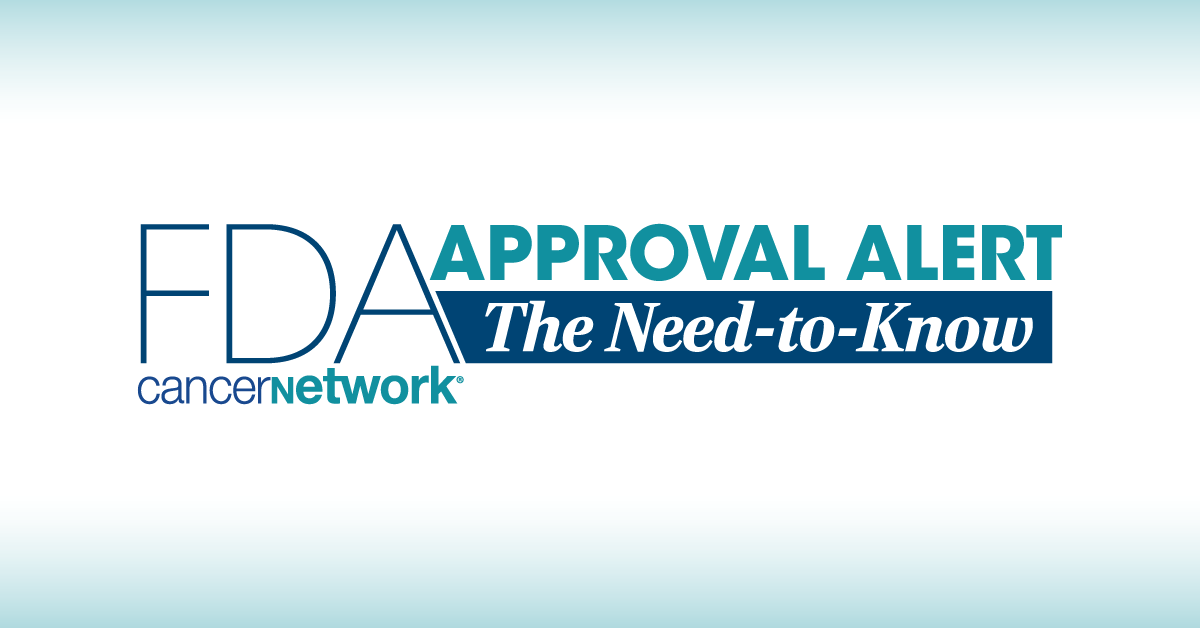FDA Approves Sotorasib/Panitumumab in KRAS G12C-Mutated CRC
Results from the CodeBreaK 300 trial helped lead to the approval of sotorasib/panitumumab in KRAS G12C-mutated CRC.
The FDA has also approved the therascreen KRAS RGQ PCR Kit, which is a companion diagnostic device that will help to identify patients with CRC who have tumors that harbor a KRAS G12C mutation.

The FDA has approved sotorasib (Lumakras) plus panitumumab (Vectibix) for patients with KRAS G12C-mutated metastatic colorectal cancer (CRC), determined by an FDA-approved test, and for those who have previously received therapy including fluoropyrimidine, oxaliplatin, or irinotecan.1
In addition, the FDA has approved the therascreen KRAS RGQ PCR Kit, which is a companion diagnostic device that will help to identify patients with ith CRC who have tumors that harbor a KRAS G12C mutation.
The approval was based on results from the phase 3 CodeBreaK 300 trial (NCT05198934), which randomly assigned patients 1:1:1 to receive sotorasib at 960 mg orally once daily plus panitumumab at 6 mg/kg intravenously every 2 weeks, sotorasib at 240 mg orally once daily plus panitumumab at 6 mg/kg intravenously every 2 weeks, or investigator’s choice of standard of care (SOC) trifluridine/tipiracil (Lonsurf) or regorafenib (Stivarga).2
Topline data focused on the sotorasib at 960 mg plus panitumumab arm and the SOC arm. The median progression-free survival was 5.6 months (95% CI, 4.2-6.3) in the combination arm and 2.0 months (95% CI, 1.9-3.9) in the SOC arm (HR, 0.48; 95% CI, 0.30-0.78; P = .005). Of note, the final overall survival (OS) analysis data were not significant, although the study was not statistically powered for OS.
The overall response rate was 26% (95% CI, 15%-40%) in the combination arm and 0% (95% CI, 0%-7%) in the SOC arm. The median duration of response in the combination arm was 4.4 months.
The press release noted that the final analysis of the 240 mg of sotorasib plus panitumumab arm vs the SOC arm was not statistically significant.
References
- FDA approves sotorasib with panitumumab for KRAS G12C-mutated colorectal cancer. News release. FDA. January 16, 2025. Accessed January 16, 2025. https://shorturl.at/1WviB
- Fakih M, Salvatore L, Esaki T, et al. Overall survival (OS) of phase 3 CodeBreaK 300 study of sotorasib plus panitumumab (soto+pani) versus investigator’s choice of therapy for KRAS G12C-mutated metastatic colorectal cancer (mCRC). J Clin Oncol. 2024;42(17). doi: 10.1200/JCO.2024.42.17_suppl.LBA3510